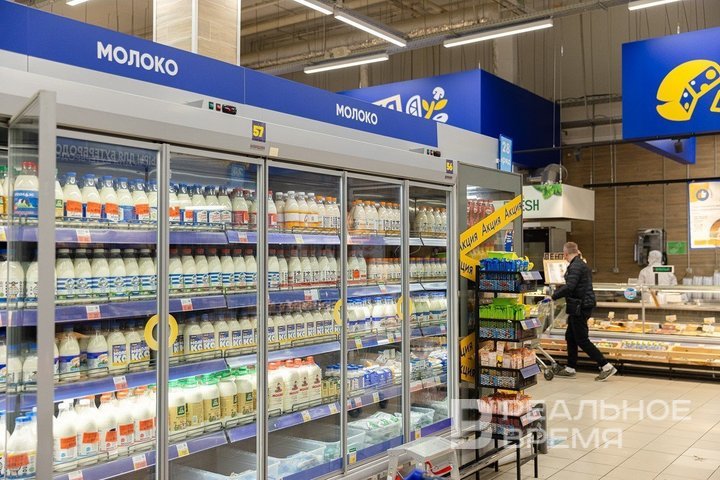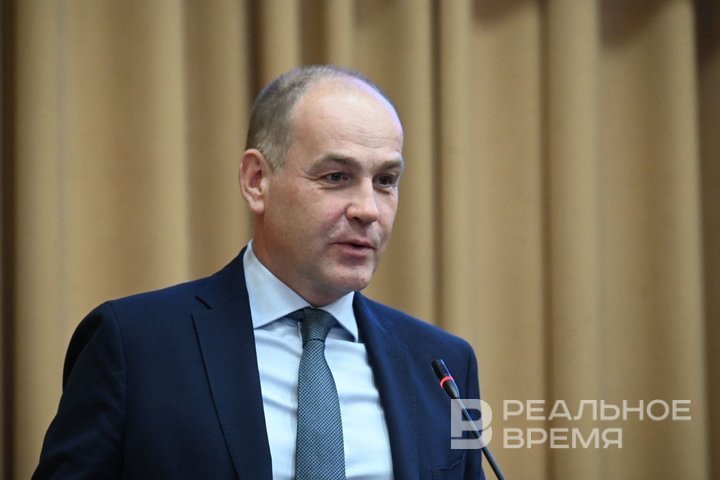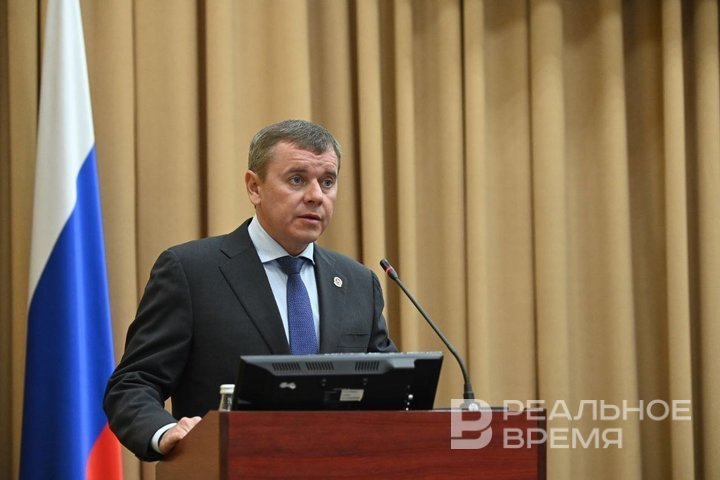‘Milk is sensitive to income’: processors begin to adjust prices
Overstocked dairy products in the chains have forced processors to reduce the purchase price of raw milk

“I won't say that sales have stopped, but the slowdown in the pace of sales of dairy products has been quite significant. Stocks of drinking milk on the shelves have grown by 14%, kefir — by 6%, and butter and cream — by 62%,” head of Soyuzmoloko Artyom Belov noted the stagnation in dairy sales today at a meeting with Tatarstan producers. He proposed eliminating market imbalances by concluding long-term contracts, and in the meantime, processors are preparing to adjust prices for dairy products. In the next year and a half, the production of raw milk will not increase, so retail prices will continue to fluctuate, Belov predicts.
Dairy producers encounter difficulties in sales
“In the last two weeks, our view of the dairy market has changed dramatically. Demand for both raw materials and finished products has slowed down significantly, and stocks have started to grow in retail chains,” said Artem Belov, head of Soyuzmoloko, who arrived for a meeting with Tatarstan dairy producers, with concern. The sharp price hike that occurred at the end of last year turned into big trouble. Overstocking in chains affected all types of products: from milk and kefir to butter, cream and glazed curds.
“I wouldn’t say that sales have stopped, but the slowdown in the sales of dairy products has been quite significant. Stocks of drinking milk on the shelves have grown by 14%, kefir by 6%, and butter and cream by 62%,” Belov noted the stagnation in dairy sales. Overall, dairy stocks on the shelves, according to him, increased by 5%. The onset of a stupor in dairy sales was apparently not expected. Milk is a very sensitive category to income. If incomes grow, consumption grows, if they fall, demand dies down, the head of the union noted later.

In March, processors began to “cut” purchase prices
The situation with raw material purchases looks a little better. According to Artyom Belov, there is a 2% increase here, that is, processors continue to increase milk purchases, but are losing money on the sale of finished products. As a result, large agricultural holdings began to adjust purchase prices for milk. Currently, the average price for raw milk in Tatarstan has increased to 45.9 rubles per kilogram excluding VAT against 38 rubles in 2024.
“The adjustment began in March, and I think it will last in March-April and until the beginning of May,” said Artyom Belov, after which the purchase prices for milk, according to him, will return to the original level. “In the second half of 2025 and throughout 2026, the consumption of milk and dairy products will grow as a result of the growth of real incomes of the population. On the other hand, the export of dairy products will grow.”
Fluctuations in the market are due to the fact that the growth of commercial milk is gradually slowing down. The reason for this is the high rate of the Central Bank, which makes investment lending less accessible. “At least in 2025-2026, we will live in this paradigm. There will be a little tension, and demand will exceed supply,” the head of the union warned. On the other hand, this is very good for producers, they will be able to get a good return.
It is necessary to switch to long-term contracts
He proposed eliminating imbalances in the dairy market by concluding long-term contracts. “Seasonal fluctuations in purchase prices for raw milk and an increase in production costs threaten the implementation of investment projects. But we must develop not only production, but also milk processing,” agreed Tatarstan Minister of Agriculture and Food Marat Zyabbarov. According to him, without developing processing capacities, the republic risks “again returning to overproduction and lower purchase prices for raw milk.”

Currently, enterprises in the republic process 4,400 tons of milk daily, which is 87% of the total volume of raw materials sold in the republic. Last year, dairy production increased by 3% compared to the 2023 level. Cheese production increased significantly — by 9.9%, and processed milk — by 5.2%. At the same time, the production of butter decreased by 11.8% (20,823 tons) and fermented milk products by 5.2% (100,753 tons).
“The production of butter depends on several factors, and first of all — on the wholesale price. What we see on the shelf, the auction sales have slowed down, but this is a consequence of what happened several months ago. After August last year, the price began to gradually adjust, in March we will see adjustments. The decrease in the price of butter in wholesale will most likely be transmitted on the shelf,” explained Artem Belov.
Most dairy enterprises are modernizing. “The Apastovo Dairy Plant, which previously processed about 200 tonnes of milk per day and produced dry skim milk and butter, after a failed modernization is capable of increasing the processing volume to 600 tonnes. Kazan Dairy Plant, which currently processes 600 tonnes of milk per day, plans to increase the processing volume to 1,000 tonnes by 2030, and may even manage to do it a year earlier.
At the same time, Tatarstan plans to increase the production of raw milk to 2.6 million tonnes, or by 320 thousand, specified the head of the Ministry of Agriculture and Food of the Republic of Tatarstan Marat Zyabbarov. This is a rather ambitious task, because the annual growth rate of raw milk production does not exceed 2-3%. To this end, the republic is modernizing livestock farms and complexes with their transfer to high-tech equipment, new farms and feed centres are being built.